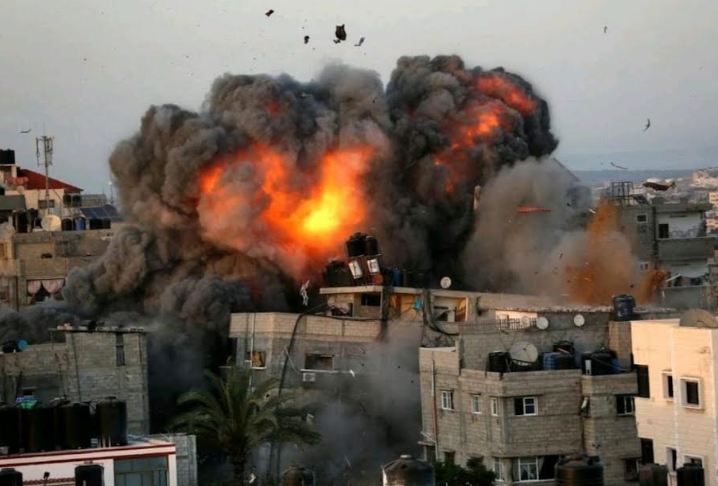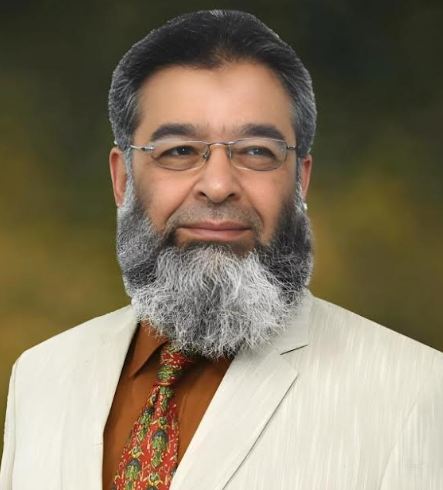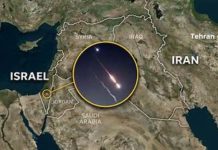by Muhammad Mohsin Iqbal
The tragedy of Gaza has once again exposed the deep cracks in the conscience of the global community and the paralyzing inertia of the Muslim Ummah. As the tiny strip of land continues to burn under Israel’s relentless bombardment, the world watches in silence, save for a few customary condemnations and hollow resolutions. The screams of innocent civilians, the wailing of mothers, and the crushed bodies of children buried under rubble have failed to stir any meaningful action from either the so-called champions of human rights or the Muslim countries that surround Gaza.

“And what is [the matter] with you that you fight not in the cause of Allah and [for] the oppressed among men, women, and children who say, ‘Our Lord, take us out of this city of oppressive people and appoint for us from Yourself a protector and appoint for us from Yourself a helper?” (Qur’an, Surah An-Nisa 4:75)
Gaza is not just another battlefield. It is a densely populated area home to over two million people, more than half of them children. Since the most recent aggression began, over 32,000 Palestinians have lost their lives, the majority of them women and children. Tens of thousands more are injured, displaced, or missing. The infrastructure of Gaza has been turned into dust. Hospitals, schools, residential buildings, water pipelines, electricity grids—nothing has been spared. The United Nations has estimated that over 70% of Gaza’s infrastructure has been completely or partially destroyed, making it unlivable for its residents.
In the face of such devastation, the reaction of the world has been shamefully muted. The self-proclaimed torchbearers of human rights and international law have done little beyond issuing carefully worded statements and non-binding resolutions. These gestures, no matter how loud, do not stop bombs. They do not heal the wounded or feed the hungry. They do not bring back the dead children pulled from the rubble of their homes.
But perhaps even more heartbreaking is the role—or the lack thereof—played by the Muslim world. There are 57 Muslim-majority countries on this planet. Together, they possess tremendous wealth and military capacity. Collectively, Muslim countries control trillions of dollars in sovereign wealth, vast energy resources, and hold significant shares in global trade and finance. In terms of military strength, the Muslim world commands more than five million active and reserve personnel, thousands of tanks and fighter jets, and even nuclear capabilities. Some Muslim countries like Turkey, Iran, Saudi Arabia, and Egypt have advanced defense industries and modernized weapon systems, yet when it comes to Gaza, all this power remains unused, locked behind closed borders and political calculations.
The Prophet Muhammad (peace be upon him) said:”The example of the believers in their mutual love, mercy, and compassion is like that of a body; when any limb aches, the whole body responds with sleeplessness and fever.”(Sahih al-Bukhari and Sahih Muslim)
Why, despite this enormous potential, do Muslim countries keep silent in the face of Israel’s brutality? The answer lies in a complex web of fear, division, and dependency. Many Muslim states are entangled in economic, political, or military partnerships with Western powers that support Israel. Others are afraid of diplomatic isolation or sanctions. Some are too divided among themselves—embroiled in regional rivalries and internal crises—to unite for a collective response. The spirit of the Ummah has been weakened by decades of fragmentation, and Gaza is paying the price for that disunity.
Gaza shares borders with several Muslim countries—most notably Egypt, and nearby lie Jordan, Lebanon, and Syria—all Muslim-majority nations. Yet, none have opened their borders to offer significant refuge or medical assistance at scale. None have taken steps to halt the bloodshed or protect the people of Gaza from the wrath of Israel’s military machine. Political hesitation and self-interest have overtaken the principles of Islamic brotherhood and humanitarian obligation.
This silence is not neutrality—it is complicity. When the world does nothing while war crimes are committed in plain view, it sends a message that the lives of Palestinians are expendable. That the destruction of their homes, hospitals, and futures is tolerable. That their suffering is not worth more than a few sound bites in the news cycle.
The Prophet (peace be upon him) said:”Whoever sees an evil, let him change it with his hand; if he cannot, then with his tongue; and if he cannot, then with his heart—and that is the weakest of faith.”(Sahih Muslim)
How many more bodies must fall before the world decides that enough is enough? How many more children must be buried under collapsed buildings before the Muslim world realizes that its strength lies not in numbers, but in unity and action? The crisis in Gaza is not just a humanitarian tragedy—it is a moral test. And so far, the world is failing.
The time for statements is over. What Gaza needs is immediate humanitarian aid, diplomatic pressure, and sustained political support. Muslim countries must rise above their divisions and come together, not just in sorrow, but in strategy and solidarity. They must leverage their influence at the United Nations, in global forums, and with their Western allies to demand a ceasefire and the lifting of the siege. They must provide material support to rebuild what has been destroyed, and most importantly, they must protect the dignity and rights of the Palestinian people.
“Indeed, Allah will not change the condition of a people until they change what is in themselves.”(Qur’an, Surah Ar-Ra’d 13:11)
History will remember this moment. It will remember the innocent lives lost and the silence that followed. It will remember the countries that stood by and did nothing. And it will ask:When Gaza was burning, where were you?

















